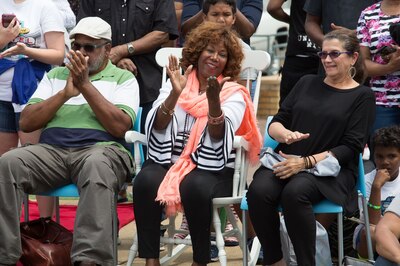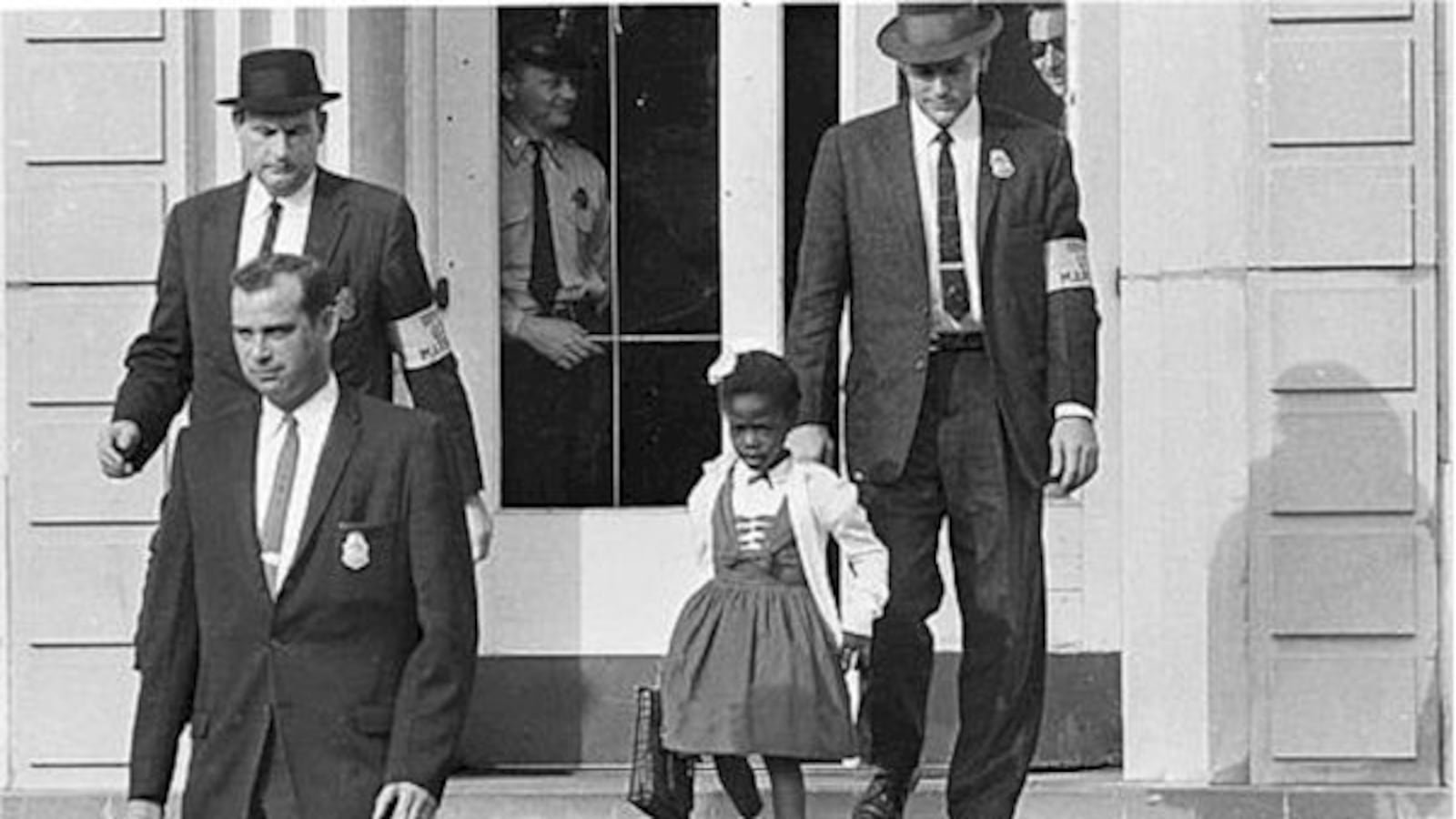At age 6, Ruby Bridges became the face of school integration as the first black child to attend an all-white elementary school in New Orleans in 1960.
Today at 62, Ruby Bridges-Hall says the United States is going in the wrong direction on school integration.
The New Orleans school where she enrolled amidst protest from white families is now segregated again — this time with mostly black students.
And there’s a growing national trend of white suburban municipalities breaking off from their mostly black urban counterparts to form their own school systems. That’s what happened in Memphis in 2014 when six communities that ringed the city pulled out of newly consolidated Shelby County Schools.

With her own literacy-focused foundation, Bridges-Hall was in Memphis last weekend for a festival named after her at the National Civil Rights Museum. Chalkbeat sat down with her to talk about the state of school segregation today. (This interview was edited for length and clarity.)
How do you see school segregation today?
I’m a strong believer that if we are going to get past our racial differences, it’s going to come from the next generation, which is our kids. We all know that’s where racism starts. None of our babies are born knowing anything about disliking one another, disliking someone that looks different. It’s taught to them and handed down. So, if we can teach them to be racist, we can teach them not to be.
And I think that’s where I come in. My experience comes from that of a child having gone through segregation. So, I do feel like I can relate to today’s students better. And I think that they see themselves in my shoes in 1960 and that’s the reason they’re so drawn to the story.
Change won’t happen if we keep children separated. So it’s crucial that schools are integrated. We all have to come together to understand that it’s important that our kids grow up together. I think the best place for kids to get to know each other is in schools.
Can you expound on the moral obligation for integration to happen?
You have to want to do it. It’s about brothers and sisters and taking care of each other. That’s the moral obligation. That’s the same thing that Martin Luther King Jr. was talking about. Now did we do it back then when he was talking about it? I don’t think so, which led us to where we are today. And now look how much worse it is. So, at some point we have to stop, think about that, and begin to come together for that moral obligation to one another as human beings.
Memphis schools are segregated. And recently an Alabama judge sanctioned the secession of a mostly white school district from a majority black one, despite the racial undertones. What’s your take on that trend?
They have the right to do that. I don’t know how that’s necessarily going to help the situation. I think eventually what they’re running from will run toward them. It’s affecting all of us, whether you live in the neighborhoods that that element comes from or not. That element comes out of that neighborhood and into yours. What they’re separating themselves from, they can’t run from that. I don’t think that’s the answer. And I think that’s what we’ve been doing since the civil rights movement. And it hasn’t helped at all. And it’s affecting all of us.
In what way?
It’s affecting all of us because, look at school shootings. I’ve gone into a school and later hear that someone’s gone in and shot 25 kids. So, what are you really running from? You can’t do that. I think that we think that we can, so we separate ourselves thinking that we’re going to isolate ourselves and we’ll be safe and we’ll be better educated and that sort of thing. And we see all around us that that’s not the case.
I don’t think that we think that deep. We don’t think about the moral issues. We just think “let’s start our own schools” and “we’re going to be safe” and “we’re going to be away from whatever.” No, that’s not happening. And segregation is happening all across the country. So, we have to come together. We can’t isolate ourselves, whether it be in schools, neighborhoods, churches, wherever.
What do you think it will take for us as a nation to move toward school integration again?
Wanting to — that’s it. You really have to want to. Because there’s no laws that we need to change anymore. You just have to want to. We’ve got to go back to thinking morally and being responsible for one another — the whole village coming together for our children.

